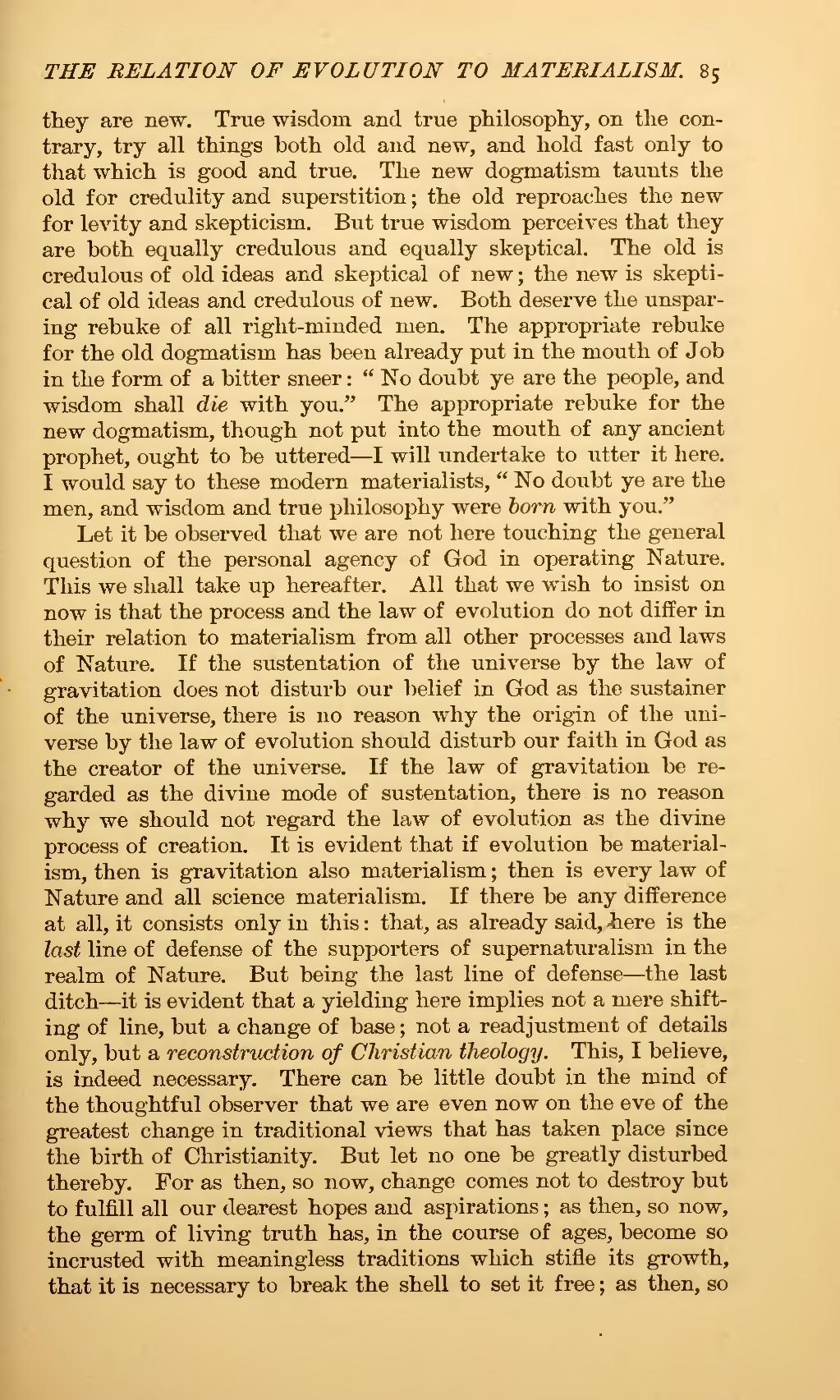they are new. True wisdom and true philosophy, on the contrary, try all things both old and new, and hold fast only to that which is good and true. The new dogmatism taunts the old for credulity and superstition; the old reproaches the new for levity and skepticism. But true wisdom perceives that they are both equally credulous and equally skeptical. The old is credulous of old ideas and skeptical of new; the new is skeptical of old ideas and credulous of new. Both deserve the unsparing rebuke of all right-minded men. The appropriate rebuke for the old dogmatism has been already put in the mouth of Job in the form of a bitter sneer: "No doubt ye are the people, and wisdom shall die with you." The appropriate rebuke for the new dogmatism, though not put into the mouth of any ancient prophet, ought to be uttered—I will undertake to utter it here. I would say to these modern materialists, "No doubt ye are the men, and wisdom and true philosophy were born with you."
Let it be observed that we are not here touching the general question of the personal agency of God in operating Nature. This we shall take up hereafter. All that we wish to insist on now is that the process and the law of evolution do not differ in their relation to materialism from all other processes and laws of Nature. If the sustentation of the universe by the law of gravitation does not disturb our belief in God as the sustainer of the universe, there is no reason why the origin of the universe by the law of evolution should disturb our faith in God as the creator of the universe. If the law of gravitation be regarded as the divine mode of sustentation, there is no reason why we should not regard the law of evolution as the divine process of creation. It is evident that if evolution be materialism, then is gravitation also materialism; then is every law of Nature and all science materialism. If there be any difference at all, it consists only in this: that, as already said, here is the last line of defense of the supporters of supernaturalism in the realm of Nature. But being the last line of defense—the last ditch—it is evident that a yielding here implies not a mere shifting of line, but a change of base; not a readjustment of details only, but a reconstruction of Christian theology. This, I believe, is indeed necessary. There can be little doubt in the mind of the thoughtful observer that we are even now on the eve of the greatest change in traditional views that has taken place since the birth of Christianity. But let no one be greatly disturbed thereby. For as then, so now, change comes not to destroy but to fulfill all our dearest hopes and aspirations; as then, so now, the germ of living truth has, in the course of ages, become so incrusted with meaningless traditions which stifle its growth, that it is necessary to break the shell to set it free; as then, so
